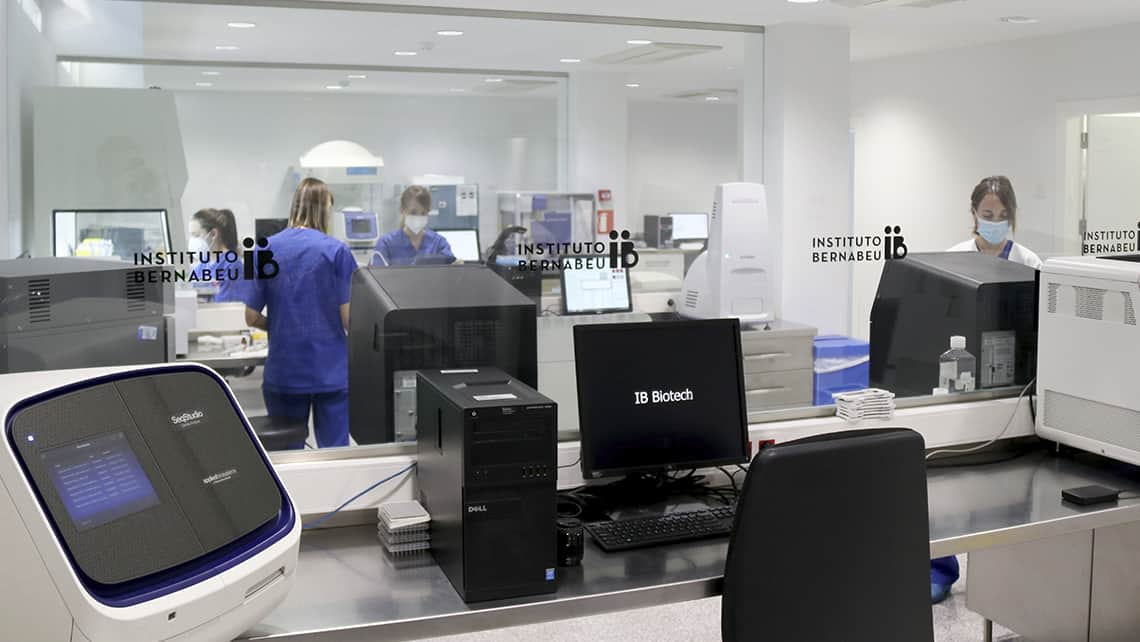Instituto Bernabeu participates in a study revealing that the genetics laboratory techniques variability may affect the number of apt embryos for transfer.
12-01-2024

The Instituto Bernabeu Biotech team, led by Dr Belén Lledó, has participated in research published in the specialised journal “Human Reproduction” in October 2023, which has evaluated the variability in genetic mosaicism rates reported by genetics laboratories, shedding light on their impact on the results of In Vitro Fertilisation (IVF) treatments.
The research, in collaboration with several medical centres and promoted by Eugin clinic, stems from the increasing complexity in the management of embryos with chromosomal mosaicism, an emerging category in the results of embryonic chromosomal alteration after pre-implantation genetic testing (PGT-A).
With 36,395 blastocyst biopsies analysed in 8 genetic testing laboratories, the laboratory influence on the mosaicism rate has been examined. These data represent 10,035 patients and 11,867 cycles performed in 17 in vitro fertilisation clinics in 5 countries and 3 continents, making it the most extensive analysis in the field to date.
Results reveal a significant variation in mosaicism rates, tanging from 3% to 25% in the different laboratories studied. “Thanks to this study we have been able to confirm that laboratories with lower rates of mosaicism have significantly higher rates of chromosomal alterations in embryos, so it is important to standardise procedures among genetics laboratories in order to improve the results in IVF treatments,” explained Dr Lledó.
The findings therefore suggest that technical variability between laboratories could affect the number of embryos suitable for transfer, which in turn could have a significant impact on clinical outcomes and the chances of pregnancy for patients.
The experts involved in the study insist on the need to standardise procedures among PGT-A laboratories and advocate to meet the highest quality standards in order to provide more accurate diagnoses. Furthermore, they stress the importance of certifications and participation in intra- and inter-laboratory quality assessment programmes.
Implicit bias in diagnosing mosaicism amongst preimplantation genetic testing providers
M. Popovic, L. Borot, A. R. Lorenzon, A. L. Rossi de Castro Lopes, D. S, B. Lledó, R. Morales, J. A. Ortiz, N. P. Polyzos, M. Parriego, F. Azpiroz, M. Galain, A. Pujo, B. Menten, L. Dhaenens, F. V. Meerschaut, D. Stoop, M. Rodriguez, E. Pérez de la Blanca, A Rodríguez, and R. Vassena
